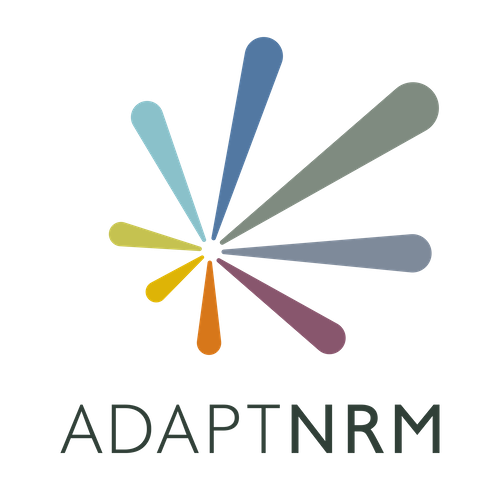Co-produce knowledge.
Research has shown that more genuine knowledge co-production with stakeholders has significant benefits over traditional consultation.
Knowledge co-production involves finding ways to work in deeper, more genuine collaboration with stakeholders throughout the development of the information, guidance, or plan. Such co-production has been shown to generate a sense of co-ownership, which in turn makes stakeholders much more likely to adopt the plan or use the guidance because it’s theirs, not someone else’s. It also ensures that the final products more fully capitalise on the expertise of stakeholders, especially if they come from different disciplines. The end result is a better product – it is more truly relevant to the people who need to use it because they have been directly involved in its crafting.
-
 How this principle was used in AdaptNRM
How this principle was used in AdaptNRM Knowledge co-production involves fairly deep collaboration, so is usually done with relatively small numbers of stakeholders. Yet AdaptNRM needed to attempt to co-produce knowledge with all of Australia’s 50+ regional NRM groups. To do this, we tried to create multiple brief moments of deep engagement.
Our approach to encouraging NRM groups to review draft versions of our guides provides a good example. To use this as an opportunity for genuine knowledge co-production:
- We shared very early drafts with NRM groups, even though early sharing of unpolished work isn’t normally done
- We asked for review comments to be shared through phone discussions so we could ask questions and gain a depth of understanding of the feedback
- We used the review process as an opportunity to source additional information from NRM groups themselves that could be directly included in the guides
- We made major revisions to the drafts to ensure we included much more direct content from NRM groups and reflected the contexts in which they work
One consequence was that planning example boxes became a feature of both biodiversity modules even though they were not originally planned, because the review process revealed the desire for such examples and the willingness of NRM groups to help us co-produce them. We capitalised on that opportunity for deep collaboration.
-
 Ideas for how you can apply this principle
Ideas for how you can apply this principleIn many realms of applied science, consultation with stakeholders has become standard practice and many planning organisations in particular have been embracing deeper and more extensive approaches to consultation for some time. Some groups now view the process as much more of a collaboration with key stakeholders than a consultation. This approach is less universal among scientists and other information providers, but could be just as beneficial to help produce the most relevant information. To get the most benefit out of this stakeholder collaboration, the end goal of knowledge co-production (and the resulting sense of co-ownership) should be at the forefront of designing engagement processes. Engagement could thus include:
- involving stakeholders throughout – sharing early and often
- providing multiple opportunities for genuine contribution, including inviting stakeholders to have a seat at the final decision-making table
- asking stakeholders themselves to write some of the text of a plan or other document (especially case studies)
- making time to significantly build and revise plans through the collaboration process
Users of scientific information like NRM groups can also engage with their information and research providers and ask for greater involvement in co-producing information and resources so they will genuinely be developed ‘with’ users and not ‘for’ users. This is a frequently under-appreciated application of this principle, so practitioners who may be adept at stakeholder collaboration may be able to broaden their practice by extending the principle to their information providers to encourage them to adopt it as well.
We hope that awareness of the benefits of truly aiming for knowledge co-production – and of some of the ways in which AdaptNRM tried to use this principle to work with a large number of stakeholders – will help inspire others to continue to push the boundaries of true stakeholder collaboration.

